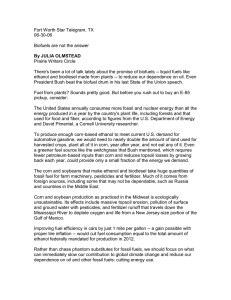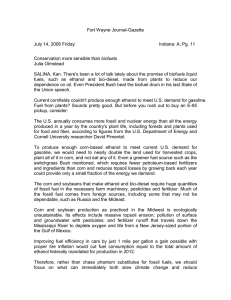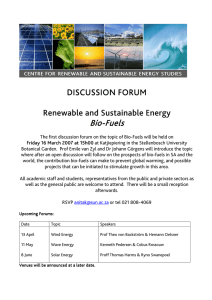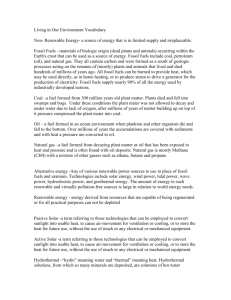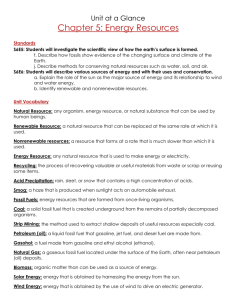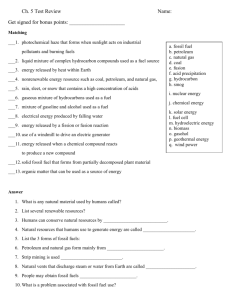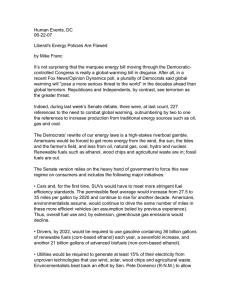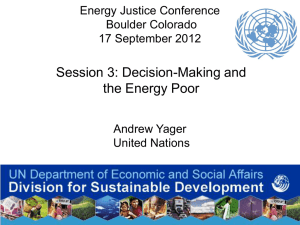Toledo Blade, OH 07-03-06 Bio-fuels are not the answer
advertisement
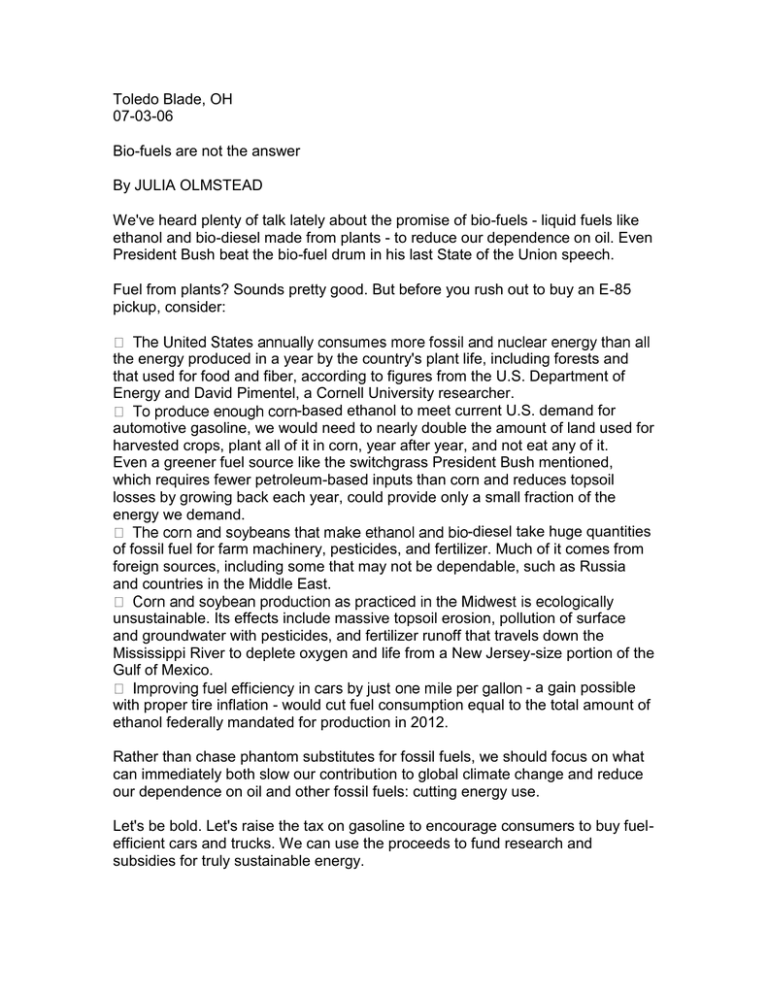
Toledo Blade, OH 07-03-06 Bio-fuels are not the answer By JULIA OLMSTEAD We've heard plenty of talk lately about the promise of bio-fuels - liquid fuels like ethanol and bio-diesel made from plants - to reduce our dependence on oil. Even President Bush beat the bio-fuel drum in his last State of the Union speech. Fuel from plants? Sounds pretty good. But before you rush out to buy an E-85 pickup, consider: the energy produced in a year by the country's plant life, including forests and that used for food and fiber, according to figures from the U.S. Department of Energy and David Pimentel, a Cornell University researcher. -based ethanol to meet current U.S. demand for automotive gasoline, we would need to nearly double the amount of land used for harvested crops, plant all of it in corn, year after year, and not eat any of it. Even a greener fuel source like the switchgrass President Bush mentioned, which requires fewer petroleum-based inputs than corn and reduces topsoil losses by growing back each year, could provide only a small fraction of the energy we demand. -diesel take huge quantities of fossil fuel for farm machinery, pesticides, and fertilizer. Much of it comes from foreign sources, including some that may not be dependable, such as Russia and countries in the Middle East. unsustainable. Its effects include massive topsoil erosion, pollution of surface and groundwater with pesticides, and fertilizer runoff that travels down the Mississippi River to deplete oxygen and life from a New Jersey-size portion of the Gulf of Mexico. - a gain possible with proper tire inflation - would cut fuel consumption equal to the total amount of ethanol federally mandated for production in 2012. Rather than chase phantom substitutes for fossil fuels, we should focus on what can immediately both slow our contribution to global climate change and reduce our dependence on oil and other fossil fuels: cutting energy use. Let's be bold. Let's raise the tax on gasoline to encourage consumers to buy fuelefficient cars and trucks. We can use the proceeds to fund research and subsidies for truly sustainable energy. Let's raise energy efficiency standards for vehicles, appliances, industries, and new buildings. Let's employ new land-use rules and tax incentives to discourage suburban sprawl and encourage dense, mixed-use development that puts workplaces, retail stores, and homes within walking distance of each other. Let's better fund mass transit. Let's switch the billions we now spend on ethanol subsidies to development of truly sustainable energy technologies. And why not spend money to make on-the-shelf technology like hybrid cars more affordable? Fuel-efficient hybrids aren't the final solution, but they can be a bridge to more sustainable solutions. The focus on bio-fuels as a silver bullet to solve our energy and climate change crises is at best misguided. At worst, it is a scheme that could have potentially disastrous environmental consequences. It will have little effect on our fossil fuel dependence. We must reduce energy use now if we hope to kick our oil addiction and slow climate change. Pushing bio-fuels at the expense of energy conservation today will only make our problems more severe, and their solutions more painful, tomorrow. Julia Olmstead is a graduate student in plant breeding and sustainable agriculture at Iowa State University and a graduate fellow with the Land Institute, Salina, Kan.
